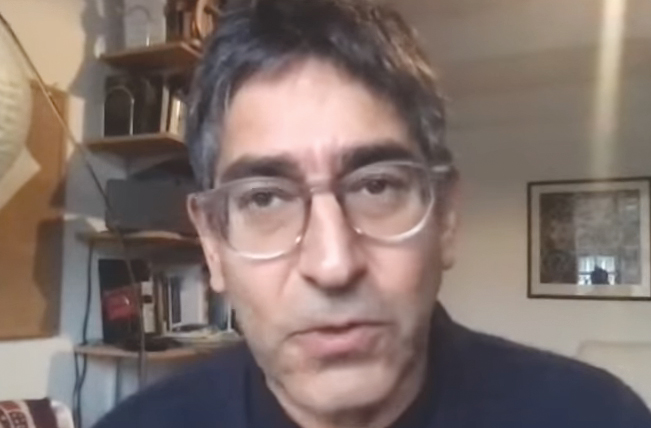Coronavirus jab is great but ‘not a silver bullet’
Experts say control measures will be needed for many months, despite vaccinations
Friday, 18th December 2020

Professor Deenan Pillay
TRIUMPHANT celebrations over how the UK “won the coronavirus vaccine race” have been tempered by warnings that immunity may fade within six months of having the jab and that the disease could always be circulating in some form.
Experts who formed an independent advice panel to track and scrutinise the course of the Covid pandemic said control measures would be needed for many more months despite the start of vaccinations.
The discussion by members of SAGE (Scientific Advisory Group for Emergencies) earlier this month clashed with the tone of this week’s national news coverage, which saw camera crews outside hospitals and the Health Secretary Matt Hancock apparently sobbing on breakfast television.
“It makes you proud to be British,” said Mr Hancock.
But the debate over whether new vaccines will be a one-off jab or needed like the seasonal winter flu injection is still going on.
The independent SAGE was positive about its arrival and encouraged take-up, but Professor Deenan Pillay, a professor of virology at UCL, said: “Already there’s talk about the need for these immunisations every year if there is waning immunity and therefore, if we’re talking about six months from now, it may be that immunity is starting to wane and there will still be the virus circulating. That would undercut the idea of herd immunity and elimination.”
The professors and scientists on the independent body, which mirrors the government’s own SAGE group, said that while the vaccines may stop deaths, it is not known yet if they will halt transmission of the virus.
Professor Pillay said “government ministers were making wildly inappropriate comments about the brilliance of the UK – how we were ahead of the world and even that we could only do this because of Brexit.”
He said that the Pfizer jab had been partly the work of a Turkish scientist in Germany working with a US company,
Professor Karl Friston, a neuroscientist at UCL, said: “One should remember that even with diseases with a fantastic vaccine like measles… we still have very large outbreaks.”
He added: “The vaccine is great, it’s going to make a big difference but it’s not going to be the whole answer. There is no silver bullet.
“The only way to achieve community suppression and get back to ‘normal’ is through public health measures and crucially the test, trace and isolation.”
All the independent experts said they themselves would take the vaccines when offered, but that work was needed to encourage uptake.
“The vaccine-hesitant are not the same as anti-vaxxers,” said Professor Stephen Reicher, from the University of St Andrews. “Anti-vaxxers are against vaccines come what may and no information will change their minds. But there are many people who have questions and they’re quite right to have questions.
“I think the first thing is to treat people with questions with respect, not as a problem but as an opportunity to lay out the information.”
The government’s own chief scientific adviser, Sir Patrick Vallance, said people could still have to wear face masks throughout next year.
“We don’t know yet how good all the vaccines are going to be at preventing the transmission of the virus,” he said.